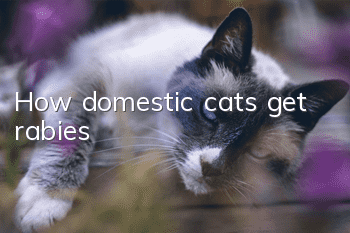Advantages and Disadvantages of Cat Neutering

The main benefits of neutering cats are to reduce the incidence of diseases, reduce behavioral problems, extend lifespan, etc. The main disadvantages of sterilization are that cats are more likely to gain weight after sterilization, and there are certain risks associated with anesthesia and surgery. But in general, the advantages of sterilizing cats outweigh the disadvantages, so if the owner plans to sterilize the cat, he can first carefully evaluate and consider the cat’s overall health condition, and choose a regular pet hospital and an experienced pet doctor to perform the surgery. , to reduce surgical risks.
1. Benefits of cat sterilization
1. Reduce the occurrence of diseases
Neuteration surgery can avoid or reduce the risk of cats’ reproductive system diseases, such as pyometra, Ovarian lesions, breast tumors, testicular tumors, etc. These diseases are more common in unneutered cats, and neutering can minimize the risk of their occurrence.
2. Reduce behavioral problems
Unneutered cats may develop bad behaviors due to high levels of male hormones, such as urinating, howling, bad temper, etc. After sterilization, male hormone levels will be reduced, and these behavioral problems will be greatly reduced. Therefore, neutering surgery is an effective behavior control method, which can help cats become more friendly and docile, and can also prevent cats from anxiety, loss of appetite, running around or even jumping out of windows caused by estrus.
3. Extend the life of cats
Studies show that cats that have been neutered have a life span of 1-2 years longer than cats that have not been neutered. Therefore, neutering a cat is not only beneficial to the cat's health and happiness, but also allows them to stay with their owners longer.
2. Disadvantages of sterilizing cats
1. Easy to gain weight
Since cats’ temperament will become gentler and lazy after sterilization, if they Failure to pay attention to diet control and increase the amount of exercise in cats may lead to changes in the cat's body shape and obesity, which may lead to some health problems, such as fatty liver and other diseases.
Therefore, owners need to pay attention to the cat's diet and exercise. They can help the cat maintain a healthy weight by controlling food intake, providing high-quality food, using cat toys to train the cat, and increasing the amount of daily activities. Avoid excessive obesity in cats.
2. There are surgical risks
Any surgery has certain risks and complications, such as anesthesia allergy, poor postoperative recovery, wound infection, etc. And for obese cats, because their bodies have some potential health problems, the risks of surgery will also be similar.should be increased.
Therefore, in order to reduce the risk of surgery, it is recommended to send the cat to a regular pet hospital, choose an experienced veterinarian to perform the surgery, and conduct a comprehensive health examination and evaluation of the cat before surgery. At the same time, appropriate care and observation need to be given after surgery, and any abnormalities should be discovered and dealt with promptly.
- What should I do if my cat eats too much and gets bloated?
- How many years does a Garfield cat live?
- Tips for training cats at a moment's notice, cat training methods!
- How to tell if cat vaccines are ineffective?
- What to do if a male cat is in heat?
- Will cats urinate and defecate randomly at home?
- What should a female cat pay attention to on the day after giving birth?
- What should I do if my cat only eats snacks but not cat food?
- What is the difference between feline nasal congestion and feline herpes virus? How to prevent and treat it!
- Can cats eat mixed cat food?



